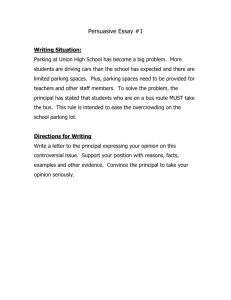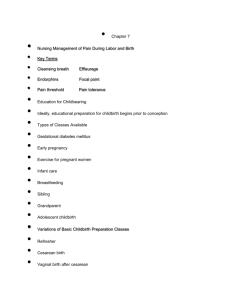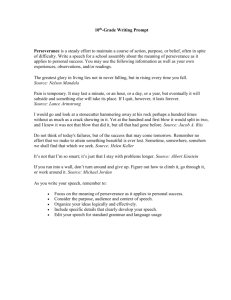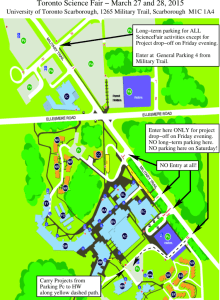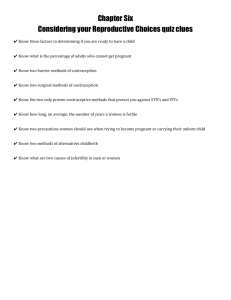Chuichi Fukaya — Opening Words: Olympics as a Festival of Peace
advertisement
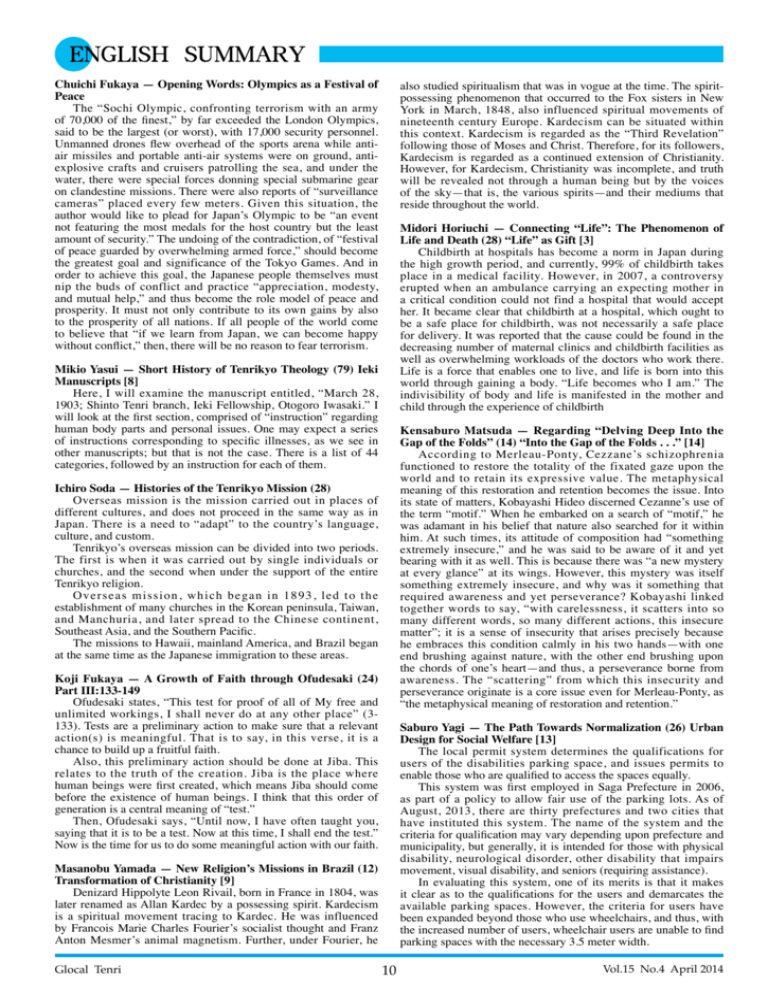
Chuichi Fukaya — Opening Words: Olympics as a Festival of Peace The “Sochi Olympic, confronting terrorism with an army of 70,000 of the finest,” by far exceeded the London Olympics, said to be the largest (or worst), with 17,000 security personnel. Unmanned drones flew overhead of the sports arena while antiair missiles and portable anti-air systems were on ground, antiexplosive crafts and cruisers patrolling the sea, and under the water, there were special forces donning special submarine gear on clandestine missions. There were also reports of “surveillance cameras” placed every few meters. Given this situation, the author would like to plead for Japan’s Olympic to be “an event not featuring the most medals for the host country but the least amount of security.” The undoing of the contradiction, of “festival of peace guarded by overwhelming armed force,” should become the greatest goal and significance of the Tokyo Games. And in order to achieve this goal, the Japanese people themselves must nip the buds of conflict and practice “appreciation, modesty, and mutual help,” and thus become the role model of peace and prosperity. It must not only contribute to its own gains by also to the prosperity of all nations. If all people of the world come to believe that “if we learn from Japan, we can become happy without conflict,” then, there will be no reason to fear terrorism. also studied spiritualism that was in vogue at the time. The spiritpossessing phenomenon that occurred to the Fox sisters in New York in March, 1848, also influenced spiritual movements of nineteenth century Europe. Kardecism can be situated within this context. Kardecism is regarded as the “Third Revelation” following those of Moses and Christ. Therefore, for its followers, Kardecism is regarded as a continued extension of Christianity. However, for Kardecism, Christianity was incomplete, and truth will be revealed not through a human being but by the voices of the sky—that is, the various spirits—and their mediums that reside throughout the world. Midori Horiuchi — Connecting “Life”: The Phenomenon of Life and Death (28) “Life” as Gift [3] Childbirth at hospitals has become a norm in Japan during the high growth period, and currently, 99% of childbirth takes place in a medical facility. However, in 2007, a controversy erupted when an ambulance carrying an expecting mother in a critical condition could not find a hospital that would accept her. It became clear that childbirth at a hospital, which ought to be a safe place for childbirth, was not necessarily a safe place for delivery. It was reported that the cause could be found in the decreasing number of maternal clinics and childbirth facilities as well as overwhelming workloads of the doctors who work there. Life is a force that enables one to live, and life is born into this world through gaining a body. “Life becomes who I am.” The indivisibility of body and life is manifested in the mother and child through the experience of childbirth Mikio Yasui — Short History of Tenrikyo Theology (79) Ieki Manuscripts [8] Here, I will examine the manuscript entitled, “March 28, 1903; Shinto Tenri branch, Ieki Fellowship, Otogoro Iwasaki.” I will look at the first section, comprised of “instruction” regarding human body parts and personal issues. One may expect a series of instructions corresponding to specific illnesses, as we see in other manuscripts; but that is not the case. There is a list of 44 categories, followed by an instruction for each of them. Kensaburo Matsuda — Regarding “Delving Deep Into the Gap of the Folds” (14) “Into the Gap of the Folds . . .” [14] According to Merleau-Ponty, Cezzane’s schizophrenia functioned to restore the totality of the fixated gaze upon the world and to retain its expressive value. The metaphysical meaning of this restoration and retention becomes the issue. Into its state of matters, Kobayashi Hideo discerned Cezanne’s use of the term “motif.” When he embarked on a search of “motif,” he was adamant in his belief that nature also searched for it within him. At such times, its attitude of composition had “something extremely insecure,” and he was said to be aware of it and yet bearing with it as well. This is because there was “a new mystery at every glance” at its wings. However, this mystery was itself something extremely insecure, and why was it something that required awareness and yet perseverance? Kobayashi linked together words to say, “with carelessness, it scatters into so many different words, so many different actions, this insecure matter”; it is a sense of insecurity that arises precisely because he embraces this condition calmly in his two hands—with one end brushing against nature, with the other end brushing upon the chords of one’s heart—and thus, a perseverance borne from awareness. The “scattering” from which this insecurity and perseverance originate is a core issue even for Merleau-Ponty, as “the metaphysical meaning of restoration and retention.” Ichiro Soda — Histories of the Tenrikyo Mission (28) Overseas mission is the mission carried out in places of different cultures, and does not proceed in the same way as in Japan. There is a need to “adapt” to the country’s language, culture, and custom. Tenrikyo’s overseas mission can be divided into two periods. The first is when it was carried out by single individuals or churches, and the second when under the support of the entire Tenrikyo religion. Overseas mission, which began in 1893, led to the establishment of many churches in the Korean peninsula, Taiwan, and Manchuria, and later spread to the Chinese continent, Southeast Asia, and the Southern Pacific. The missions to Hawaii, mainland America, and Brazil began at the same time as the Japanese immigration to these areas. Koji Fukaya — A Growth of Faith through Ofudesaki (24) Part III:133-149 Ofudesaki states, “This test for proof of all of My free and unlimited workings, I shall never do at any other place” (3133). Tests are a preliminary action to make sure that a relevant action(s) is meaningful. That is to say, in this verse, it is a chance to build up a fruitful faith. Also, this preliminary action should be done at Jiba. This relates to the truth of the creation. Jiba is the place where human beings were first created, which means Jiba should come before the existence of human beings. I think that this order of generation is a central meaning of “test.” Then, Ofudesaki says, “Until now, I have often taught you, saying that it is to be a test. Now at this time, I shall end the test.” Now is the time for us to do some meaningful action with our faith. Saburo Yagi — The Path Towards Normalization (26) Urban Design for Social Welfare [13] The local permit system determines the qualifications for users of the disabilities parking space, and issues permits to enable those who are qualified to access the spaces equally. This system was first employed in Saga Prefecture in 2006, as part of a policy to allow fair use of the parking lots. As of August, 2013, there are thirty prefectures and two cities that have instituted this system. The name of the system and the criteria for qualification may vary depending upon prefecture and municipality, but generally, it is intended for those with physical disability, neurological disorder, other disability that impairs movement, visual disability, and seniors (requiring assistance). In evaluating this system, one of its merits is that it makes it clear as to the qualifications for the users and demarcates the available parking spaces. However, the criteria for users have been expanded beyond those who use wheelchairs, and thus, with the increased number of users, wheelchair users are unable to find parking spaces with the necessary 3.5 meter width. Masanobu Yamada — New Religion’s Missions in Brazil (12) Transformation of Christianity [9] Denizard Hippolyte Leon Rivail, born in France in 1804, was later renamed as Allan Kardec by a possessing spirit. Kardecism is a spiritual movement tracing to Kardec. He was influenced by Francois Marie Charles Fourier’s socialist thought and Franz Anton Mesmer’s animal magnetism. Further, under Fourier, he Glocal Tenri 10 Vol.15 No.4 April 2014

